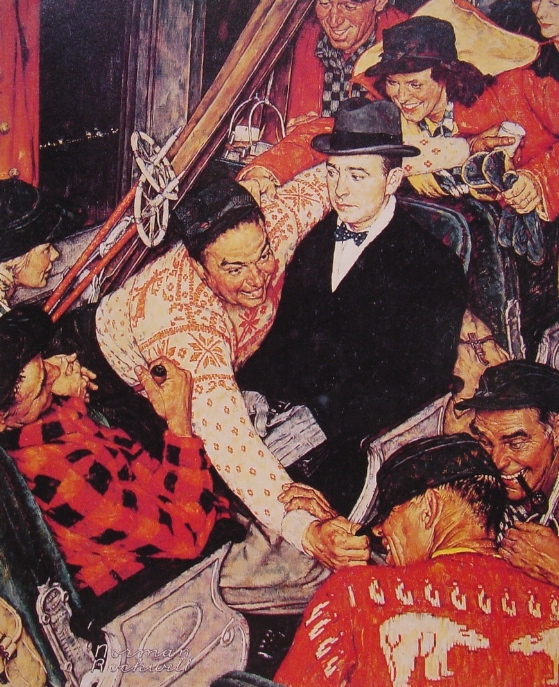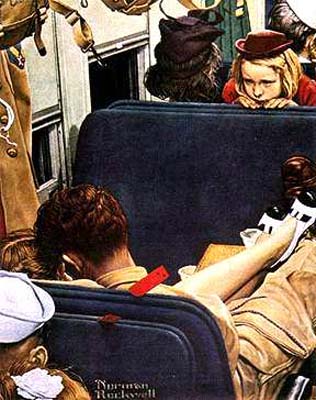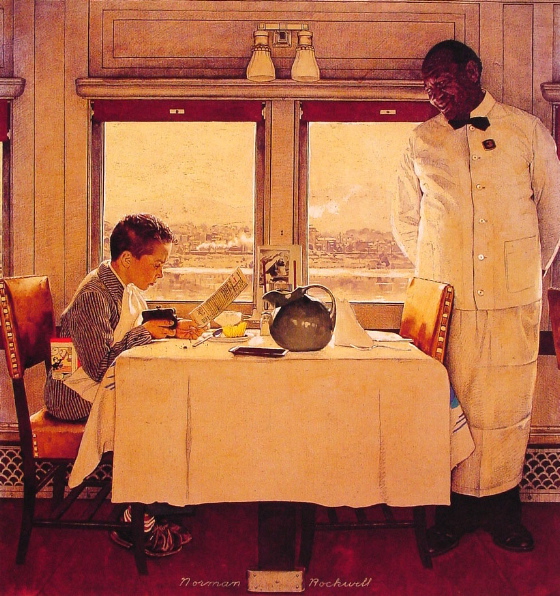
As the art critic Dave Hickey has observed, Norman
Rockwell was inspired by the idea of American citizenship, and he often
portrayed the places and occasions in American life which brought
Americans together in that peculiar comradeship unique to functioning
democracies.
In our polarized age, when the gap between rich and
poor grows positively surreal, when urban environments no longer
function as genuine melting pots, when suburban residential patterns
emphasize the isolation of income-brackets, Rockwell's visions of
community take on a nostalgic glow — but in his own time Rockwell was
celebrating something real, something in the now.
I'm particularly fond of Rockwell's paintings of
people on trains — a now uncommon mode of travel in which people from
different backgrounds met as equals, in an environment that allowed for
interaction. There was space and time for interaction — as there
isn't, for example, on an airplane, which has no common space, where
moving about is difficult and hardly encouraged.
In the painting at the head of this post, democracy rules — a gang of
skiers sets the excited tone of the passenger car . . . the quieter
fellow submits, observes, is perhaps intrigued. He's temporarily out
of sync, but not out of place.
The “Saturday Evening Post” cover below is one of my
favorite images of WWII. A soldier on leave tries to make time with
his girl, while a kid looks on jealously. The soldier, the homefront
and the future intersect momentarily on a crowded train in the middle
of a dreadful war, and we see everything that's at stake in the
conflict.

Below, a kid on a train journey by himself is watched
over by a sophisticated professional who's seen it all but still finds
it possible to be amused and touched by the rite of passage he's witnessing,
as the kid tries earnestly to make his way in an adult arena. The
dining car waiter has a job to do — but so does the kid, and he's
working at it.

Americans
of every background meet today as citizens, as equals, only at the polls on
election days, or at casinos — there are fewer and fewer everyday
environments and occasions where one can feel the genuine community of
citizenship, and that's partly why one finds such warm fellow-feeling
at polling places and in casinos. Rockwell was right to be
sentimental
about such places and occasions, and nostalgia is not a sufficient
response to his images of them. They should inspire us to recover
what's been lost.
